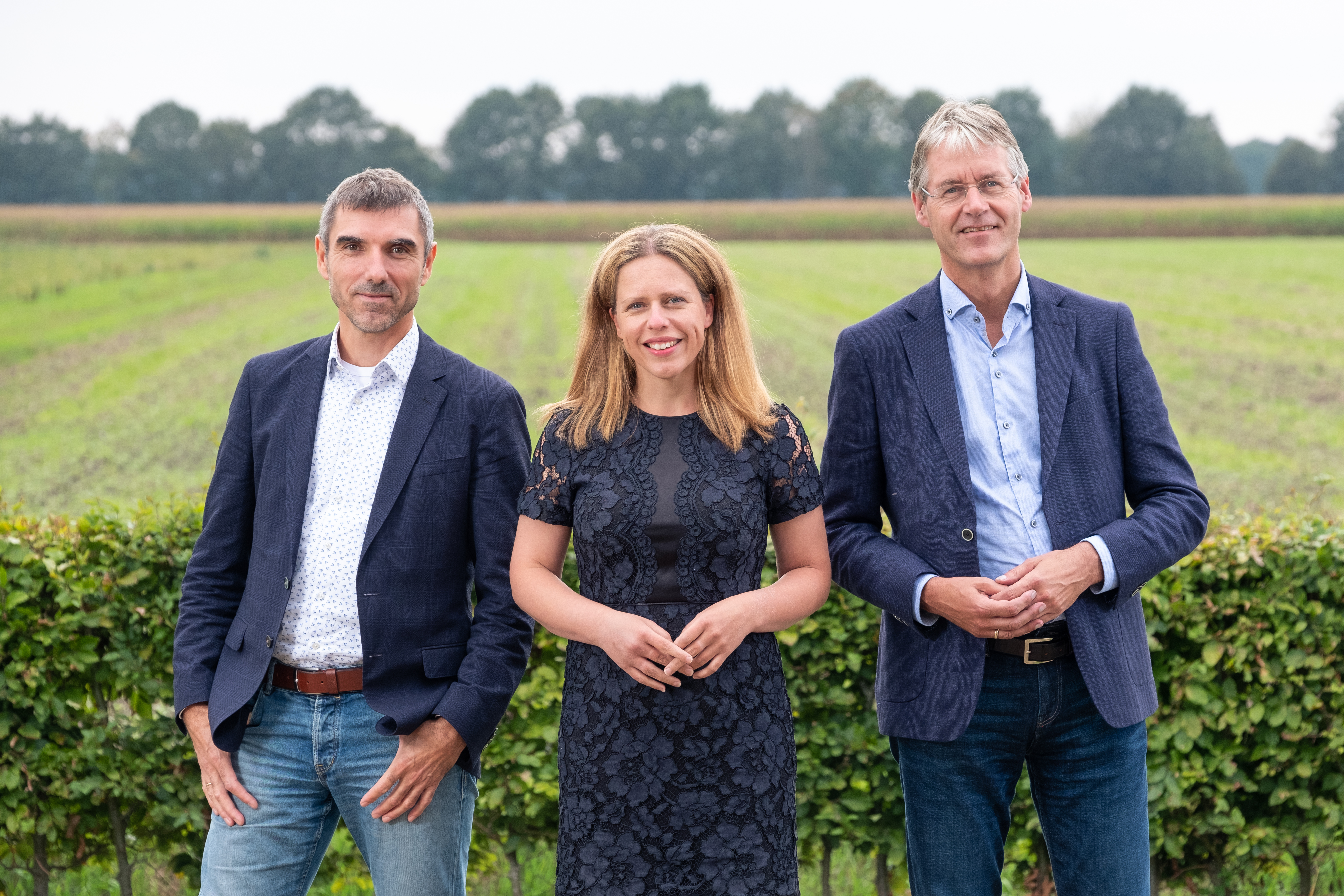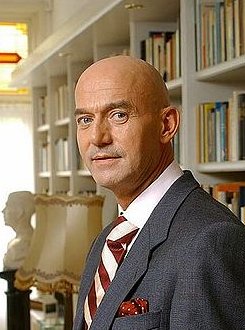|
2003 Dutch Cabinet Formation
The 2003 Dutch cabinet formation concerned the Dutch cabinet formation, formation of a new Cabinet of the Netherlands, cabinet after the 2003 Dutch general election held on January 22, 2003. It involved negotiations about which coalition partners would form a Regeerakkoord, common programme of policy and it involved the division of the cabinet posts. After severe disagreements in the formation of a Christian Democratic Appeal, CDA-Dutch Labour Party, PvdA cabinet, a Christian Democratic Appeal, CDA-VVD-Democrats 66, D66 Second cabinet Balkenende, cabinet was formed on May 27, 2003, with Jan Peter Balkenende, Balkenende as prime minister. First information round The first round of negotiations started on February 5 aimed at a CDA-PvdA coalition. There was large consensus in the House of Representatives of the Netherlands, House of Representatives and the general public that a cabinet based on these parties would properly reflect the outcome of the elections. The Queen Beatrix, quee ... [...More Info...] [...Related Items...] OR: [Wikipedia] [Google] [Baidu] |
Dutch Cabinet Formation
The formation of a Dutch cabinet is the process of government formation of a Dutch cabinet, consisting of Minister (government), ministers and State Secretary (Netherlands), state secretaries. Most cabinet formations take place after elections for the House of Representatives (Netherlands), House of Representatives, but these can also take place in between. There are no legal provisions outlining the specific process of forming a government. The only Constitution of the Netherlands, constitutional requirement is the appointment of ministers by the head of state at the end of the formation process. According to customary law, the dictates that the new cabinet must have the support of the majority in parliament. Additionally, under the parliamentary system, there must be sufficient backing to pass legislation. These rules are complemented by conventions, traditions, and customs that have evolved and changed over time. The formation can be roughly divided into three phases. In the ... [...More Info...] [...Related Items...] OR: [Wikipedia] [Google] [Baidu] |
Ferd Crone
Drs. Ferdinandus Johannes Maria Crone (born 19 July 1954) is a Dutch politician. He was born in Dordrecht in 1954. On 15 November 2007 he became Mayor of Leeuwarden. He remained mayor until 26 of August 2019 when he was succeeded by Sybrand van Haersma Buma. As of February 2020 he is a member of the Senate. He was made a knight of the Order of Orange Nassau on 15 November 2007. References 1954 births Living people Mayors of Leeuwarden Knights of the Order of Orange-Nassau Members of the Senate (Netherlands) People from Dordrecht 21st-century Dutch politicians {{Netherlands-mayor-stub ... [...More Info...] [...Related Items...] OR: [Wikipedia] [Google] [Baidu] |
Gerrit Zalm
Gerrit Zalm (; born 6 May 1952) is a retired Dutch people, Dutch politician of the People's Party for Freedom and Democracy (VVD) and businessman. Zalm studied Economics at the Vrije Universiteit Amsterdam, obtaining a Master of Economics degree, and worked as a civil servant for the Ministry of Finance (Netherlands), Ministry of Finance, the Ministry of Economic Affairs and Climate Policy (Netherlands), Ministry of Economic Affairs and the Bureau for Economic Policy Analysis from June 1975 until August 1994, and as a professor of Political economy at his alma mater from January 1990 until August 1994. After the 1994 Dutch general election, 1994 general election, Zalm was appointed List of Ministers of Finance of the Netherlands, Minister of Finance in the First Kok cabinet, Kok I cabinet, taking office on 22 August 1994. After the 1998 Dutch general election, 1998 general election, Zalm continued his position in the Second Kok cabinet, Kok II cabinet. In the 2002 Dutch general el ... [...More Info...] [...Related Items...] OR: [Wikipedia] [Google] [Baidu] |
Formateur
A formateur (French for "someone who forms, who constitutes") is a politician who is appointed to lead the formation of a coalition government, after either a general election or the collapse of a previous government. The role of the formateur is especially important in the politics of Belgium, the Netherlands, Luxembourg, Italy, Israel and the Czech Republic. These countries have a parliamentary system, where the executive derives its mandate from majority support in the legislature. They also use proportional representation for elections to parliament, and have a multiparty system that makes it improbable for one party to win an outright majority. There may be several combinations of parties which might form a coalition. The formateur is traditionally appointed by the head of state but in the Netherlands that became the right of the Speaker of the House of Representatives in the early 21st century. The formateur most often comes from the largest party in the future coalitio ... [...More Info...] [...Related Items...] OR: [Wikipedia] [Google] [Baidu] |
Parliamentary Party
A parliamentary group, parliamentary caucus or political group is a group consisting of members of different political parties or independent politicians with similar ideologies. Some parliamentary systems allow smaller political parties, who are not numerous enough to form parliamentary groups in their own names, to join with other parties or independent politicians in order to benefit from rights or privileges that are only accorded to formally recognized groups. An electoral alliance, where political parties associate only for elections, is similar to a parliamentary group. A technical group is similar to a parliamentary group but with members of differing ideologies. In contrast, a political faction is a subgroup within a political party and a coalition forms only after elections. Parliamentary groups may elect a parliamentary leader; such leaders are often important political players. Parliamentary groups in some cases use party discipline to control the votes of their mem ... [...More Info...] [...Related Items...] OR: [Wikipedia] [Google] [Baidu] |
ChristianUnion
The Christian Union ( ; CU) is a Christian democratic political party in the Netherlands. The CU is a centrist party, maintaining more progressive stances on economic, immigration and environmental issues while holding more socially conservative positions on issues such as abortion and euthanasia. The party describes itself as "social Christian".ChristenUnie '' Parlement & Politiek'' The CU was founded in 2000 as a merger of the (GPV) and [...More Info...] [...Related Items...] OR: [Wikipedia] [Google] [Baidu] |
First Balkenende Cabinet
The first Balkenende cabinet was the executive branch of the Netherlands government from 22 July 2002 until 27 May 2003. The cabinet was formed by the Christian-democratic Christian Democratic Appeal (CDA), the nationalistic Pim Fortuyn List (LPF) and the conservative-liberal People's Party for Freedom and Democracy (VVD) after the election of 2002. The cabinet was a right-wing coalition and had a substantial majority in the House of Representatives with Christian Democratic Leader Jan Peter Balkenende serving as Prime Minister. Prominent economist Eduard Bomhoff served as Deputy Prime Minister and Minister of Health, Welfare and Sport, while prominent Liberal politician Johan Remkes served as Deputy Prime Minister and Minister of the Interior and Kingdom Relations. The cabinet served during the early unstable 2000s. Domestically, it had to deal with the fallout of the assassination of Pim Fortuyn, and internationally, with the start of the war on terror. The c ... [...More Info...] [...Related Items...] OR: [Wikipedia] [Google] [Baidu] |
Staphorst
Staphorst () is a municipality and a town in the eastern Netherlands. History The villages of Staphorst and its southern neighbour Rouveen came into existence as in the 13th century monks started to bring the bogs and swamps into culture. All the farms were built along the long road through the bog area. Thus a lengthy row of farms was built, becoming the long village of Staphorst-Rouveen. This phenomenon is called in Dutch: ''lintbebouwing'' (Ribbon development, ribbon urbanization). In many parts of the Netherlands this type of village is quite common, e.g. Vriezenveen, the villages along river Dike (construction), dykes in the Netherlands, the so-called moor-colonies in the provinces Drenthe and Groningen (province), Groningen, as well as the German regions opposite the border. Staphorst was a Dutch municipality, created through a decree by French emperor Napoleon who merged four smaller entities into a much larger one. The 1811 decree merged the villages of Rouveen, Stap ... [...More Info...] [...Related Items...] OR: [Wikipedia] [Google] [Baidu] |
Staatkundig Gereformeerde Partij
The Reformed Political Party ( , SGP) is a conservative Reformed ChristianThese sources describe the SGP as a Calvinist (Reformed Christian) political party: * * * * political party in the Netherlands. The SGP is the oldest political party in the Netherlands existing in its present form, and has been in opposition for its entire existence. Since 1925, it has won between 1.5% and 2.5% of the votes in general elections. Owing to its orthodox political ideals and its traditional role in the opposition, the party is considered a testimonial party. History Foundation The SGP was founded in 1918 by orthodox Protestants led by Yerseke pastor Gerrit Hendrik Kersten, some of which originated from the Protestant Anti-Revolutionary Party (ARP). After the Pacification of 1917, compulsory voting and proportional representation was introduced in the Netherlands. The founders did not want to vote for existing parties, but saw an opportunity for a smaller party because of proportional repres ... [...More Info...] [...Related Items...] OR: [Wikipedia] [Google] [Baidu] |
ChristenUnie
The Christian Union ( ; CU) is a Christian democratic political party in the Netherlands. The CU is a centrist party, maintaining more progressive stances on economic, immigration and environmental issues while holding more socially conservative positions on issues such as abortion and euthanasia. The party describes itself as "social Christian".ChristenUnie '' Parlement & Politiek'' The CU was founded in 2000 as a merger of the (GPV) and [...More Info...] [...Related Items...] OR: [Wikipedia] [Google] [Baidu] |
First Balkenende Cabinet
The first Balkenende cabinet was the executive branch of the Netherlands government from 22 July 2002 until 27 May 2003. The cabinet was formed by the Christian-democratic Christian Democratic Appeal (CDA), the nationalistic Pim Fortuyn List (LPF) and the conservative-liberal People's Party for Freedom and Democracy (VVD) after the election of 2002. The cabinet was a right-wing coalition and had a substantial majority in the House of Representatives with Christian Democratic Leader Jan Peter Balkenende serving as Prime Minister. Prominent economist Eduard Bomhoff served as Deputy Prime Minister and Minister of Health, Welfare and Sport, while prominent Liberal politician Johan Remkes served as Deputy Prime Minister and Minister of the Interior and Kingdom Relations. The cabinet served during the early unstable 2000s. Domestically, it had to deal with the fallout of the assassination of Pim Fortuyn, and internationally, with the start of the war on terror. The c ... [...More Info...] [...Related Items...] OR: [Wikipedia] [Google] [Baidu] |
Pim Fortuyn List
The Pim Fortuyn List (, LPF) was a political party in the Netherlands that existed from 2002 to 2008 at a national level and was named after its eponymous founder Pim Fortuyn, a former university professor and political columnist. The party was often considered right-wing populist nationalist by media and political observers due to its policies as well as adhering to its own distinct ideology of '' Fortuynism'' according to some commentators which reflected the political ideas of Fortuyn. Andeweg, R. and G. Irwin ''Politics and Governance in the Netherlands'', Basingstoke (Palgrave) p.49 The LPF supported tougher measures against immigration and crime, opposition to multiculturalism, greater political reform, a reduction in state bureaucracy and was eurosceptic but differed somewhat from other European right-wing or nationalist parties by taking a liberal stance on certain social issues and sought to describe its ideology as pragmatic and not populistic. It also aimed to pr ... [...More Info...] [...Related Items...] OR: [Wikipedia] [Google] [Baidu] |






